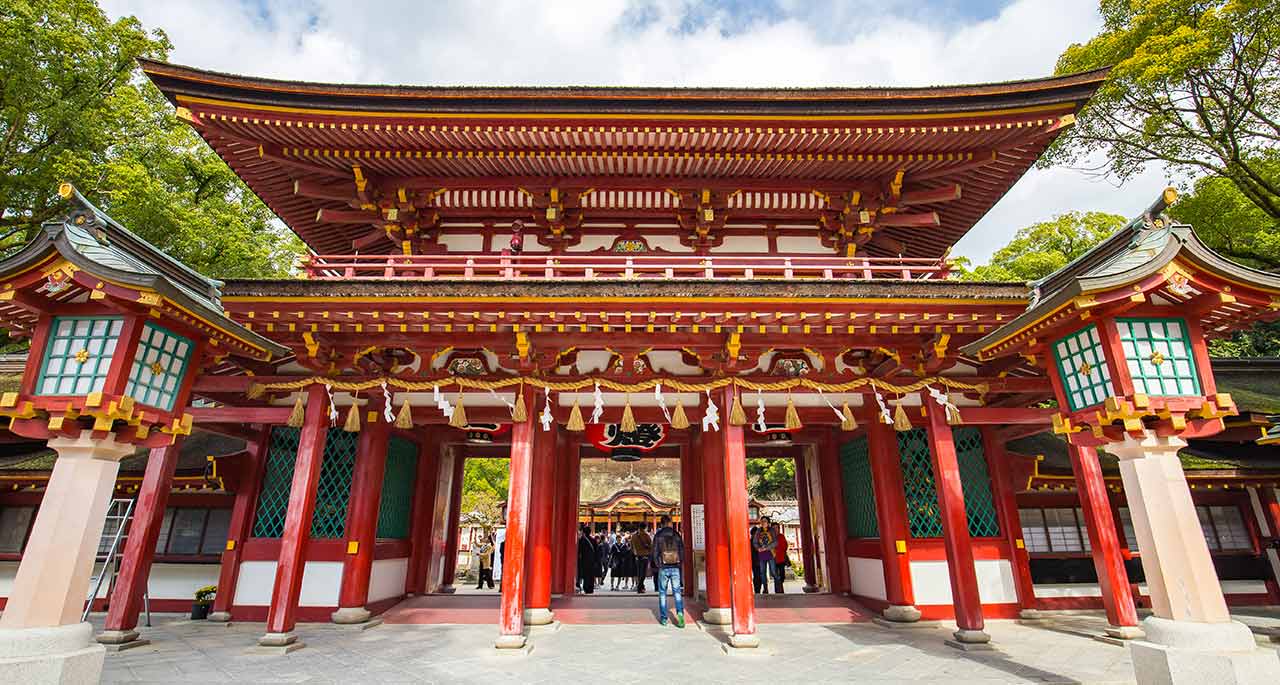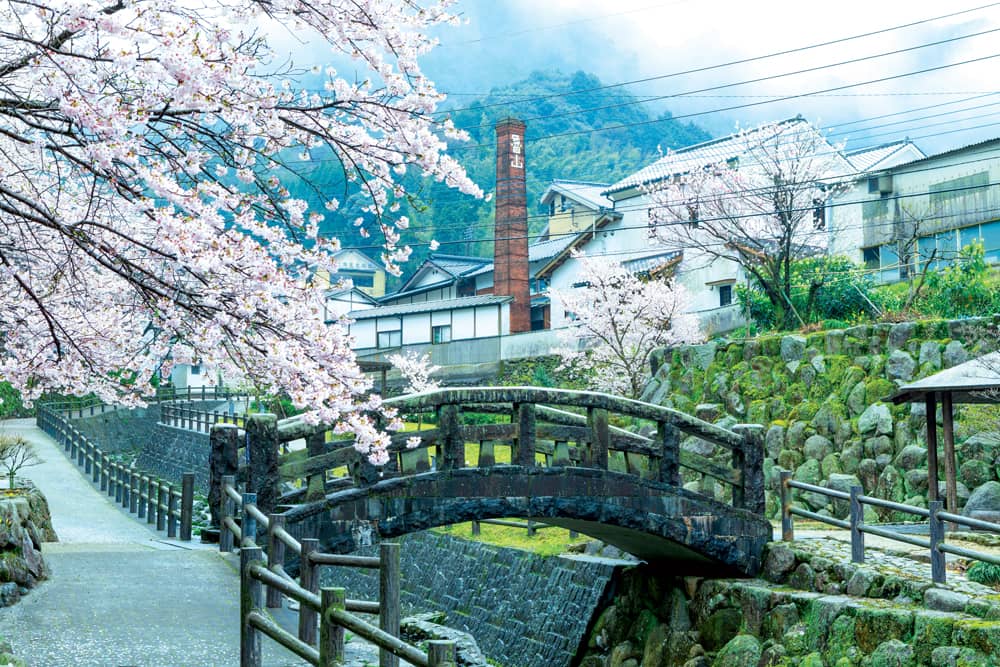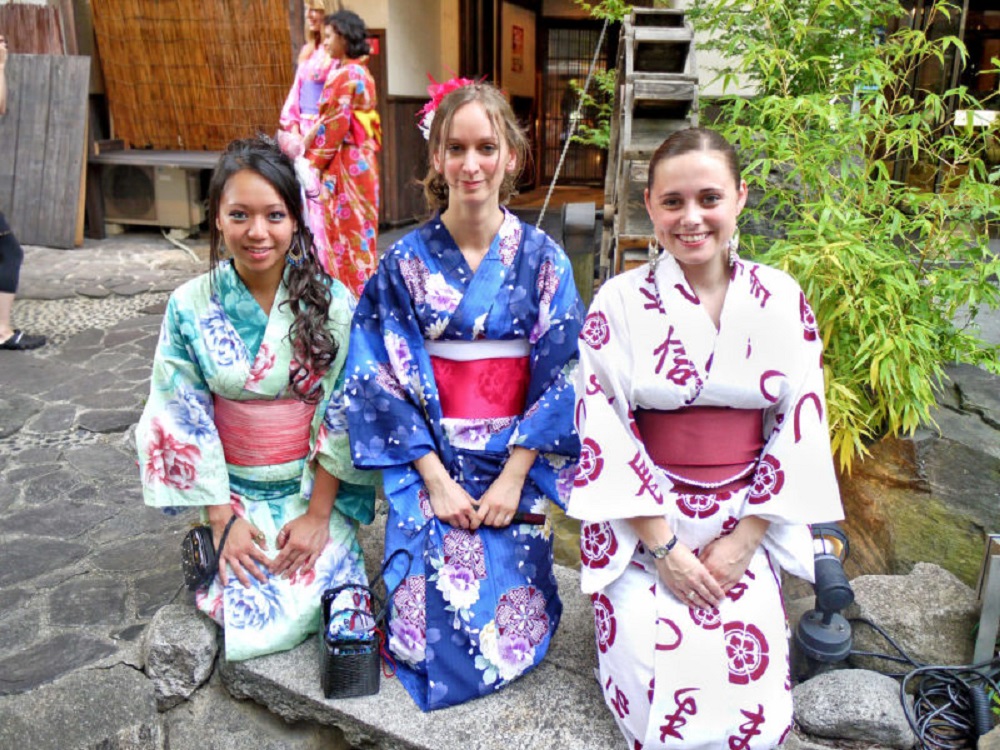Overview
Fukuoka is one of Japan’s ten most populous cities. Because of its proximity to the Asian mainland, Fukuoka has been an important harbor city for many centuries, and was chosen by the Mongol invasion forces as their landing point in the 13th century. Today’s Fukuoka is the product of the fusion of two cities in the year 1889, when the port city of Hakata and the former castle town of Fukuoka were united into one municipality. Hakata remains the name of one of Fukuoka’s central districts and of the main railway station. Fukuoka’s warmth and friendliness make it a great gateway to Kyushu, and warm weather and contemporary attractions – art, architecture, shopping and cuisine – make it a good base for regional excursions.
Why study Japanese in Fukuoka?
In short, students of the Japanese language will find many more persons in Fukuoka who speak only Japanese, as opposed to the more international Tokyo, which will allow them a more full-immersion experience through the opportunity to practice their speaking all day.
Here are some other reasons to study Japanese in Fukuoka:
Fukuoka Nightlife
Kyushu Island has a population of 13 million people and Fukuoka is its nightlife capital. Fukuoka is known for its izakaya, karaoke, clubs, concert halls and bars.
Fukuoka Festivals
Fukuoka is home to some lively festivals, including a race through the streets carrying one-ton floats and a surreal display of 6000 lanterns at a forest shrine.
Fukuoka Sports
Fukuoka has a good baseball team and hosts one of the six national grand tournaments of sumo.
Fukuoka Temples and Shrines
Fukuoka has a number of temples and shrines that are amongst Japan’s oldest and most interesting. Visitors can check out the 30-ton wooden Buddha at Tochoji Temple or the 6000 plum trees of the Dazaifu Tenmangu Shrine.
Fukuoka Green Space
Fukuoka is a green city with excellent parks, including one modeled after West Lake in China. It’s also home to interesting castle ruins and a building designed to look like a hanging garden.
Fukuoka Shopping
Fukuoka has an usual amount of shopping venues for a city of its size, including one of the world’s largest shopping malls.
Fukuoka Cherry Blossoms
Fukuoka has some of the top ranked cherry blossom spots in the country. It’s a city in which it is possible to find both party spots and quiet places to enjoy Japan’s favorite pastime, flower viewing.
Language Schools and Camps in this Destination
Images of Fukuoka, Japan
Things to Do and See During a Vacation Study
Kushida-jinja
The intimate Kushida-jinja, municipal Shinto shrine of Hakata, traces its history to AD 757 and sponsors the Hakata Gion Yamakasa Matsuri, in which storeys-high floats make their way through the streets. The shrine has displays of Hakata festival floats on the grounds. A one-room local history museum covers the festival, and displays swords, ancient pottery and more.
Hakata Machiya Furusato-kan
Spread over three machiya (traditional Japanese townhouses), this folk museum re-creates a Hakata nagare (neighborhood unit) from the late Meiji era. The replica buildings house historical photos and displays of traditional Hakata culture, festivals, crafts and performing arts, as well as recordings of the Hakata-ben dialect. Artisans are frequently on hand offering demonstrations.
Fukuoka Asian Art Museum
On the upper floors of the Hakata Riverain Centre, this large museum houses the world-renowned Asia Gallery, and additional galleries for special exhibits and artists in residence. Changing exhibits cover contemporary works from 23 countries, from East Asia to Pakistan.
Shikanoshima
Delightfully rural, this island has fresh seafood restaurants that line the harbour-side streets. Ferries depart hourly from Bayside Place, along with seasonal sightseeing cruises around Hakata Bay. Shikanoshima also has a fishing shrine, decorated with deer antlers, and a popular beach about 5km east of the shrine.
Tocho-ji
Tocho-ji has Japan’s largest wooden Buddha (10.8m high, 30 tons, created in 1992) and some impressively carved Kannon (goddess of mercy) statues. The temple is said to date from AD 806 and to have been founded by Kūkai, the founder of the Shingon school of Buddhism.
Shofuku-ji
Shofuku-ji is a Zen temple founded in 1195 by Eisai, who introduced Zen and tea to Japan; the nation’s first tea plants are said to have been planted here.
Nihon-teien
Set within the expansive grounds of Ohori-koen, adjacent to the remains of Fukuoka’s once-grand castle, this traditional Japanese garden boasts a beautiful main pond, a dry garden, and a traditional tea house.
Fukuoka City Museum
This museum displays artifacts from local history and culture. The pride of the collection is an ancient 2.3-sq-cm, 108g golden seal with an inscription proving Japan’s historic ties to China.
Hakata Gion Yamakasa Festival
The Hakata Gion Yamakasa is one of the most fascinating festivals in Japan, held every year during the first half of July and ending with a spectacular time trial race in the early morning hours of July 15. In the race, seven neighborhoods of Fukuoka’s Hakata district compete in pushing beautifully decorated festival floats along a five-kilometer course through the city.
Food Stalls (Yatai)
Fukuoka’s open air food stands are possibly the city’s best known symbol. Yatai can generally seat about seven or eight people and provide an atmospheric outdoor environment to enjoy various foods that are generally simple and filling. Typical dishes enjoyed at yatai are grilled chicken skewers (yakitori), hot pot (oden) and most famously Hakata Ramen, a local noodle dish featuring relatively thin ramen noodles in a pork bone based soup (tonkotsu).
Canal City Hakata
Canal City Hakata is a large shopping and entertainment complex, calling itself a “city within the city.” Attractions include about 250 shops, cafés and restaurants, a theater, a game center, cinema, two hotels, and a canal running through the complex.
How to Arrive at your Language Course
By Air
Tokyo-Fukuoka is one of the world’s busiest air routes with dozens of departures per day, operated by JAL, ANA, Starflyer, Skymark, Peach and Jetstar Japan. Flight duration is about 110 minutes. Most flights use Tokyo’s Haneda Airport, but a few flights also use Narita Airport. Fukuoka Airport is Japan’s most easily accessible airport, only a five minute subway ride from the city’s main railway station, Hakata Station.
By bus
Nishitetsu operates a daily night bus between Fukuoka and Tokyo (Shinjuku Bus Terminal above JR Shinjuku Station). The one way journey takes 14.5 hours.





























